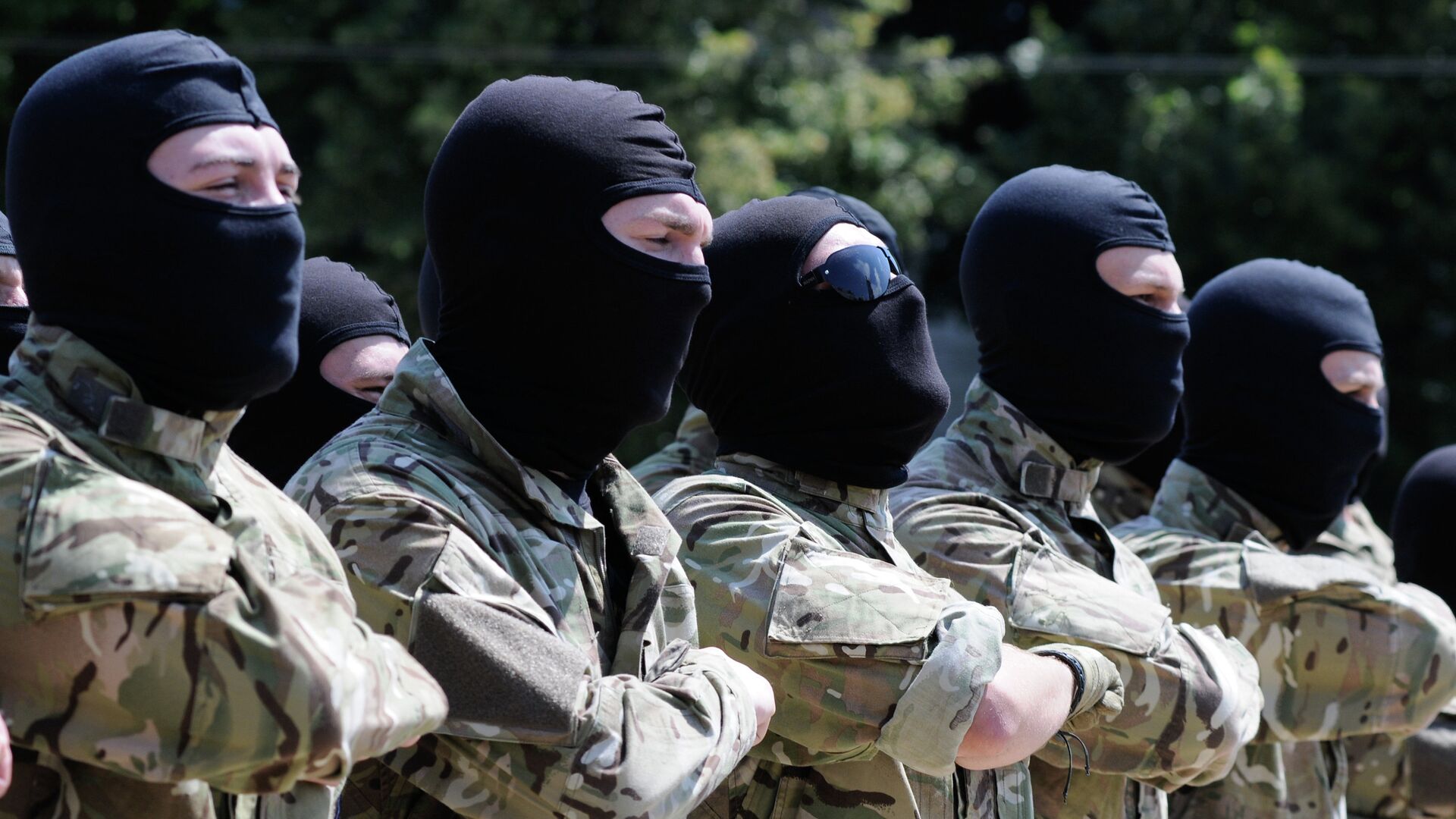Russian Diplomat Warns German Weapons Meant for Ukraine May Fall Into Hands of Terrorists

© Sputnik / Alexandr Maksimenko
/ Subscribe
MOSCOW (Sputnik) - Moscow is disappointed with Berlin's decision to supply weapons to Ukraine and concerned that these weapons may fall into the hands of terrorists, Oleg Tyapkin, the head of the Russian foreign ministry's Third European Department, said in an interview with Sputnik.
"We are deeply disappointed that the German government, in violation of its own national legislation and legal restrictions at the EU level, has deviated from its previously balanced course on this issue, which was due, among other things, to considerations of historical responsibility on the part of Germany towards the peoples of the former USSR," Tyapkin said.
Russia is also "seriously concerned about the fact that the weapons supplied to Ukraine in the current situation can become easy prey for terrorists and looters," the diplomat added.
Berlin has fully agreed with the anti-Russian position of the West, blocking the channels of dialogue with Moscow, he pointed out.
"So far, we are forced to state that the German government, despite the assurances that it is still committed to the process of historical reconciliation between the peoples of Germany and Russia, has fully agreed with the anti-Russian position of the West and is purposefully blocking the existing channels of cooperation and profile dialogue in all areas," Tyapkin said.
Moscow hopes that Berlin will understand the futility of "burning bridges," the diplomat said, noting that peace and prosperity on the continent will depend on relations between the two countries.
"So far, we are forced to state that the German government, despite the assurances that it is still committed to the process of historical reconciliation between the peoples of Germany and Russia, has fully agreed with the anti-Russian position of the West and is purposefully blocking the existing channels of cooperation and profile dialogue in all areas," Tyapkin said.
Moscow hopes that Berlin will understand the futility of "burning bridges," the diplomat said, noting that peace and prosperity on the continent will depend on relations between the two countries.
In late February, the German government announced its plans to supply Ukraine with weapons, approving the transfer of 400 German-made anti-tank guns, nine D-30 howitzers and ammunition to Kiev.
"For several weeks I have been speaking in this hall on the subject of arms deliveries, that it is necessary to change our foreign policy by 180 degrees at the right moment and with full awareness. Tragic though it may be, the moment has come," erman Foreign Minister Annalena Baerbock said at a Bundestag meeting, claiming diplomacy in relations with Russia had failed.
At the time, Russian Foreign Ministry spokeswoman Maria Zakharova warned that German lethal weapons will again be directed against the Russians. She also said that the weapons supplied by Germany to Ukraine could fall into the hands of neo-Nazis, terrorists and looters.
For his part, Russian Foreign Minister Sergei Lavrov said that Moscow was astonished by comments of top German politicians regarding the situation in Ukraine and deliveries of weapons there.
"I listen with astonishment to the comments of European, especially German, politicians. My colleague Annalena Baerbock said that, given the historical responsibility which Germany is aware of, her country is simply obligated to supply weapons to Ukraine. What is it supposed to mean? That historical guilt and awareness of historical guilt requires Germany to support neo-Nazis? This creates strange connotations," he said in an interview with the Al Jazeera broadcaster on 2 March/


